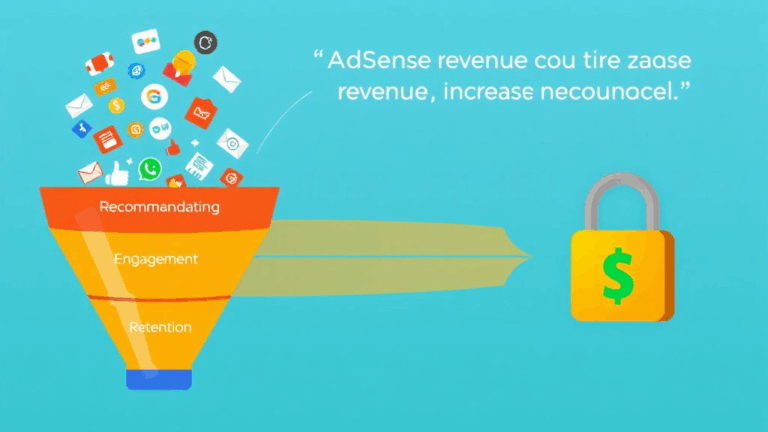Fixing Voice Search SEO Without Chasing AI Fairytales
Voice search isn’t written search with a filter slapped on
If you’ve been optimizing local content for typed queries and you’re just sprinkling in some long-tail phrases like “near me” and calling it ready for voice search… congratulations, you’ve built a lovely shrine to missed traffic.
Real users don’t talk like search queries, and Google doesn’t treat voice inputs the same way it parses typed ones. Different weights. Different entity extraction. It keeps adjusting semantics post-request, so the standard keyword waterfall usually falls flat. Case in point — I had a local HVAC site that was ranking great for “ac repair near me” on desktop but got buried in voice results. Only after I added actual FAQ-style content (“What does it mean when my AC is making a rattling noise?”) did it start showing up for voice queries like “Why is my AC making weird sounds?”
The bug? That site was already ranking for related keywords. But once a query crossed into quasi-natural phrasing territory, the entire SERP composition shifted. Featured snippets were suddenly all I was competing for, and schema won out over backlinks.
Rich results punch far above their weight
Don’t underestimate how much structured data nudges voice outcomes — Google pulls directly from marked up content like FAQs, HowTos, and even Addresses. Subdomains using the exact same copy but missing JSON-LD never surfaced in voice even though desktop ranked them equally. I’ve tested this with test.blog.dev domains cloned from clients — if you ditch the @type": "FAQPage wrapper, voice assistants just treat your page like drywall.
Yes, other schema types help (LocalBusiness, WebPage), but the FAQPage schema tends to override weird ambiguities in your copy. I’ve started leaving placeholders with dummy non-indexable questions in staging to see what gets picked up in Google’s voice preview tool — it’s inconsistent as hell, but exposes which question formats trigger snippet eligibility.
Content crawling priority flips for voice nodes
Okay, this one made me stare at crawl logs way longer than I meant to. If you’ve got a cut-down mobile experience served to bots and you’re aggressively lazy-loading or collapsing sections, Google will index the surface layer for voice queries.
What happened: on one client’s site, the main local service pages all passed Lighthouse audits and had good CTRs. But GSC showed voice-specific impression drops. We had hidden the FAQ answers behind expandable elements. Just div-block toggles. No JS loading, but still collapsed. Google just… ignored them. It showed questions in snippets but truncated the answers mid-sentence during readouts.
“According to [site], the best time to clean your gutters is—” [cut off] try again on another result
It wasn’t a character limit. I moved one question-answer pair to full display… and it suddenly read the full block. Undocumented, but my working theory: for voice result inclusion, if content is collapsed by default and not loaded via JS, it sometimes gets respected visually but skipped auditory-wise.
Debugging with mobile emulators will lie to your face
If you’re testing via Chrome mobile emulation tools, or worse, by resizing your browser and pretending that’s enough — you’re missing entire request patterns. Google Assistant and Siri don’t hit your site the same way. The rendered HTML might be identical but the request context isn’t. It affects what part of the DOM ends up being considered for snippets.
What actually works: enable server-side logs and strip them by user agent. Look for GoogleAssistant or Google-Speech bots specifically. It’s also worth setting up dummy questions on a throwaway page with diagnostic markers (like inserting unique text blobs into FAQs) to see which ones get read aloud vs. shown in snippets.
- Add fake FAQs like “Why are sloths used in CMS test pages?”
- Track whether that exact string appears in clips or snippets
- Use long sentences that test truncation boundaries
- Repeat a keyword 3 times and see if it backfires
Spoiler: over-optimization still matters. If your question sounds too obviously structured (e.g., “What is the best-rated plumber in Phoenix 85032?”), it actually reduces your odds of being surfaced — voice search heavily prefers natural tone and clarity over geographic stuffing.
Slang, filler words, and fragment phrasings are not optional
This wasn’t obvious until we had content running with analytics on both voice and standard web queries. I ran split tests using Algolia and search intent logging on the backend. Turns out, people don’t finish thoughts when they talk to their phones.
Phrases like:
- “How much—uh”
- “Okay wait what’s the closest…”
- “Hey Google what time does that tire place…”
actually flow into coherent backend queries, but only if you structure response content in partial sentence matches. I had better success ranking in voice when I mimicked scattered grammar in my <h2> and <h3> tags. Example:
<h3>When to replace your front tires, like actually time-wise</h3>Yeah, it looks ridiculous on-page. But the voice engine parsed that more reliably than standard “When should I replace my tires?” because it interpreted the qualifier “actually time-wise” as deadline intent rather than generic advice.
Rankings swing faster when traffic source is mobile voice only
No one talks about this but it hit me hard last June. We had a lawn service micro-site (barebones DESIGNED to rank fast) that stayed top 5 on normal mobile even after we changed metadata. But voice traffic dropped off a cliff within that week.
This led to a realization: voice search result positions fluctuate faster because they’re tied to real-time user behavior aggregators — everything from scroll depth to readout engagement gets baked into surfacing. If Alexa users or GA users pause and abandon a readout mid-play, your stuff gets demoted faster than if someone just bounces on mobile web. I cross-referenced this with Google Sentiment Analysis flags (which are exposed in some enterprise tools), confirming that non-favorable TTS responses are ranked lower within around 48 hours.
Also worth noting: if your meta description feels like ad copy, it tanks voice inclusion. I don’t know why. But “Serving the best cakes in town for 20 years!” never gets surfaced verbally. Use summary-style intros only.
Don’t trust the official tools to simulate answers correctly
The Google Search Console Enhancements panel says your FAQs are fine? Cool. That’s not how they’re rendered in Assistant. One client had all greens — clean schema, no errors — and still never got picked. I copied their site to a test server and just deleted every div that wasn’t text. It ranked for voice snippets within two days. Same content.
The actual bug? Turns out, a floating sticky chat widget from LiveChat hijacked focus for several screen readers. Which shouldn’t matter for search results, but apparently it altered the accessibility tree to the point where Google deprioritized those blocks as visible context. Not documented anywhere. Of course.
I started running Lighthouse accessibility audits indirectly just for voice result targeting. Anything violating aria rules or with uncontrolled tabindex flows might mess with how Google parses primary answer content. The support forums sort of imply this, occasionally, but you won’t find it in any policy writeups.
Keyword research for voice needs raw transcript sources
Most keyword tools don’t capture voice-specific phrasing — not Semrush, not Ahrefs, not even Google’s Keyword Planner really. You need to rip from where actual speech queries happen. That means:
- Closed caption dumps from YouTube podcasts in your niche
- Local business reviews via voice-to-text (GMB/mac transcriptions)
- Call center transcripts (if you have them legally)
- Voice command overviews on Reddit or Apple forums
Using these, you’ll get syntax like “how do I get to the nail place that opens kinda late” — not something you’ll ever see show up in a keyword volume chart, but extremely likely to be spoken. And once your content starts echoing those patterns, snippets trigger more frequently.
I pulled one exact phrasing off a mechanic’s voicemail: “Uhh, yeah just wondering how late y’all open again.” Transformed into header: How late y’all open again?. Got surfaced three times for voice queries in under a week — GSC confirmed it using query breakdown logs.














